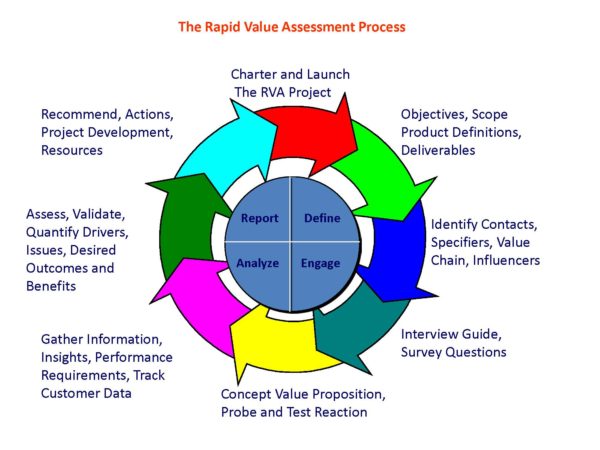The Rapid Value Assessment™ (RVA) is aimed at testing the value for a new concept in an existing or new market. It starts with understanding the market, and focuses on how to translate the concept into a value proposition. It usually covers Rapid Market Assessment topics first.
Over time, the RVA process has grown to stay abreast of changing innovation needs. Although the basic premise hasn’t changed, there are some innovative twists to addressing the question “How does the market value our concept?”

Innovative Approaches
are co-sponsored by both an upstream player and a downstream player in the value-adding chain. These development partnerships not only identify even more promising innovations, but also accelerate the development process even faster.
add key quantitative questions to the engagement. Hybrid RVAs are especially critical in marrying outcomes to concept features. They add clarity to expectations; some even add pricing options to the value assessments.
involve investigating related concepts simultaneously, giving the participants the opportunity to compare value to cost options.
involve moving on to a quantitative product evaluation on the fly. Learnings lead to an opportunity to prototype concepts early on to better align product features to user needs.


